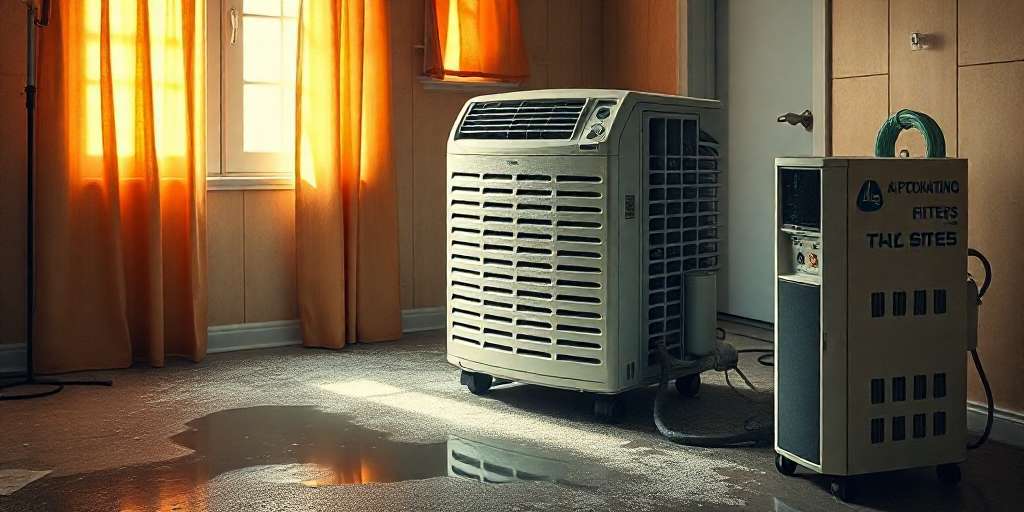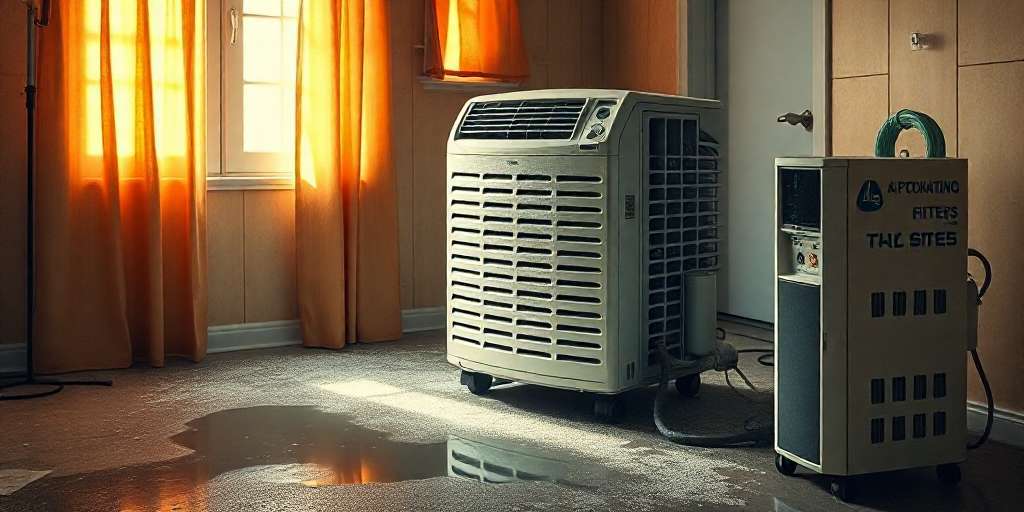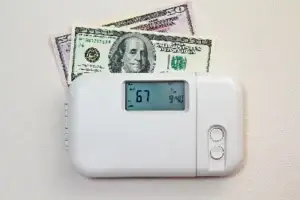Air conditioning systems can sometimes fail to cool effectively, causing discomfort during hot weather. Understanding the common reasons behind this issue can help in addressing potential problems early. This article explores five main factors that may prevent an air conditioner from cooling properly. Each reason will be examined to provide insights into identifying and resolving these issues effectively.

Dirty or Clogged Air Filters
Dirty or clogged air filters are a common issue that can significantly reduce the efficiency of an air conditioning system. Regular attention to air filters ensures optimal airflow and contributes to effective cooling performance.
How to Identify a Dirty Filter
Identifying a dirty air filter is essential for maintaining an efficient cooling system. Several indicators can signal that it’s time to check or replace the filter:
- The visible presence of dirt, dust, or debris on the filter.
- Reduced airflow from the ventilation ducts.
- Increased energy bills due to the unit working harder to cool.
- Unusual noises from the unit, indicating strain in the system.
Impact on Airflow and Cooling
When air filters become dirty or clogged, they obstruct the airflow essential for the air conditioning system’s operation. This obstruction creates multiple problems, including:
- Reduced efficiency in cooling, as the air conditioner struggles to circulate air.
- Increased wear and tear on the system components due to extended operation.
- Potential icing of the evaporator coils caused by insufficient air reaching them.
As airflow diminishes, the cooling process is compromised. Homeowners may notice that their living spaces remain uncomfortably warm, despite the AC running continuously.
Maintenance Tips
Regular maintenance of air filters is essential for the longevity and efficiency of air conditioning systems. Here are some recommended practices for maintaining clean filters:
- Inspect air filters every month, particularly during peak cooling seasons.
- Replace standard filters every three months. More frequent changes may be necessary in households with pets or high dust levels.
- Consider using high-efficiency particulate air (HEPA) filters for better air quality and performance.
- Keep track of filter replacement dates by marking them on a calendar to ensure timely changes.
By ensuring that air filters are clean and functioning properly, the efficiency of the air conditioning unit can be significantly enhanced. Effective filter maintenance not only helps maintain optimal airflow but also supports overall indoor air quality.
Refrigerant Leak
A refrigerant leak can significantly impact an air conditioning system’s cooling efficiency. Understanding the signs of a refrigerant leak and addressing it promptly can prevent further complications and ensure optimal performance.
Signs of a Refrigerant Leak
Detecting a refrigerant leak early is crucial to maintaining the efficiency of an air conditioning system. Some common signs include:
- Ice forming on refrigerant lines or the evaporator coil, indicating low refrigerant levels.
- Hissing or bubbling sounds coming from the unit, which can signal escaping refrigerant gas.
- Reduced cooling performance, where the air conditioner runs but fails to adequately cool the space.
- Increased energy bills, as the unit works harder to compensate for the loss of refrigerant.
Importance of Proper Refrigerant Levels
Refrigerants are essential for the cooling process in air conditioning systems. They absorb heat from indoor air and release it outside. Maintaining the proper refrigerant levels is vital for several reasons:
- Efficient Cooling: Adequate refrigerant ensures the system can effectively cool the home, maintaining comfort even during extreme heat.
- System Longevity: Proper levels help reduce wear and tear on the air conditioning components, extending the overall lifespan of the unit.
- Energy Efficiency: A system operating with the correct refrigerant levels consumes less energy, which translates to lower utility bills.
Steps to Take for a Refrigerant Leak
If a refrigerant leak is suspected, it’s essential to take prompt action. The following steps can help address the issue:
- Turn off the air conditioning unit to prevent further damage and avoid potential health risks from refrigerant exposure.
- Inspect the indoor and outdoor units for visible signs of leakage, such as ice buildup or residue around fittings and connections.
- Contact a certified HVAC technician to assess the situation and perform necessary repairs. Handling refrigerants requires specialized training and equipment to ensure safety and compliance with regulations.
- Upon repair, the technician will recharge the system with the correct type and amount of refrigerant to restore optimal performance.
Malfunctioning Thermostat
A malfunctioning thermostat can significantly disrupt the cooling efficiency of an air conditioning system. If the thermostat fails to read temperatures accurately or send signals to the AC unit, it can lead to inadequate cooling, contributing to overall discomfort in the living space.
Common Thermostat Issues
Several issues can arise with thermostats that may affect their performance. Recognizing these problems early can help prevent further complications. Common thermostat issues include:
- Incorrect Calibration: Thermostats may be out of calibration, causing them to inaccurately measure the temperature.
- Dead Batteries: Battery-operated thermostats may stop functioning entirely if the batteries are dead, leading to a complete loss of control over the system.
- Wiring Problems: Loose or damaged wires can prevent the thermostat from communicating with the air conditioning unit effectively.
- Malware or Software Glitches: Smart thermostats may experience glitches or software issues that can disrupt their operation.
DIY Troubleshooting
Before calling in a professional, some basic troubleshooting steps can help identify and potentially resolve thermostat issues. Steps include:
- Check Settings: Ensure that the thermostat is set to “cool” mode and is set to a temperature lower than the current room temperature.
- Inspect the Batteries: For battery-operated models, replace the batteries to rule out power loss.
- Examine Wiring: Inspect the wires connected to the thermostat for any visible signs of wear or disconnection.
- Reset the Thermostat: For digital models, performing a reset can sometimes resolve temporary glitches.
When to Call a Professional
If the basic troubleshooting steps do not rectify the problem, it may be time to seek professional help. Situations that warrant calling a technician include:
- Persistent Issues: If the thermostat continues to malfunction after DIY attempts, it may indicate a deeper issue.
- Complex Wiring Problems: Damaged or exposed wiring requires the expertise of a qualified HVAC professional.
- Thermostat Replacement: If the thermostat is consistently inaccurate or outdated, replacement may be necessary to ensure efficient operation.
- Smart Thermostat Problems: Issues with smart thermostats often require specialized knowledge for troubleshooting and repair.
Blocked or Clogged Outdoor Unit
A blocked or clogged outdoor unit can significantly hinder the performance of an air conditioning system. It is crucial to ensure that the outdoor unit remains unobstructed to facilitate the effective expulsion of heat, thus enhancing overall cooling efficiency.
Identifying Blockages
Proper function of the air conditioning system can be severely compromised by physical obstructions surrounding the outdoor unit. Several indicators can help in spotting blockages:
- Visual Inspection: Regularly check for any visible debris such as leaves, dirt, and branches that may encroach upon the outdoor unit.
- Weed Growth: Unchecked weeds and grass can grow around the unit and inhibit airflow, impacting performance.
- Airflow Test: Holding your hand near the unit’s vents can help to sense airflow. A drastic reduction in airflow may indicate blockage.
- Dirt Accumulation: Inspect the unit for any dirt buildup, which can coat the coils and impede efficient heat exchange.
Impact on System Efficiency
Blockages directly affect the air conditioning system’s ability to operate efficiently. The consequences may include:
- Reduced Cooling Output: The unit may struggle to cool indoor spaces as trapped heat fails to dissipate effectively.
- Increased Energy Consumption: A system under strain from blockages typically consumes more energy, leading to higher utility bills.
- Potential Damage: Continued operation with obstructions can lead to overheating, causing long-term damage to the unit and potentially necessitating costly repairs.
Preventative Measures for Your Outdoor Unit
Taking proactive measures is essential to maintain the efficiency of the outdoor unit. Some recommended practices include:
- Regular Cleaning: Schedule periodic cleanings to clear away debris, leaves, and other materials that may collect around the unit.
- Maintenance Landscaping: Design landscaping around your outdoor unit to ensure that plants do not obstruct airflow. Aim to keep at least two feet of clearance around the unit.
- Frequent Inspections: Conduct routine checks to identify and address any blockages early on before they escalate into larger issues.
- Professional Maintenance: Engage HVAC professionals for routine maintenance checks, as they can perform thorough inspections and cleanings that may be overlooked during casual observations.
Frozen Coils
Frozen coils can significantly hinder the efficiency of an air conditioning system. When evaporator coils freeze, they disrupt the cooling process, leading to a variety of issues that require timely attention.
Symptoms of Frozen Evaporator Coils
Identifying frozen coils early can prevent further damage to the air conditioning unit. Common symptoms indicating this problem include:
- Ice buildup around the refrigerant tubing
- Excessive condensation or water pooling near the unit
- Ineffective cooling despite the system running
- Unusual noises coming from the unit, such as hissing or bubbling
Causes of Frozen Coils
Several factors can contribute to the freezing of evaporator coils. Understanding these causes can help in managing and preventing the issue:
- Inadequate Airflow: Dirty filters or blocked vents can reduce airflow, causing the coils to freeze due to insufficient warm air circulating around them.
- Low Refrigerant Levels: A refrigerant leak can lead to decreased pressure in the system, resulting in a drop in temperature around the evaporator coils, leading them to freeze.
- Faulty Thermostat: If the thermostat does not regulate the temperature properly, it can cause the system to run longer than necessary, leading to low temperatures and frozen coils.
- Environmental Factors: High humidity levels can increase condensation on the coils, which may freeze if airflow is restricted.
Solutions to Fix Frozen Coils
Addressing frozen coils promptly is essential to restore normal function to the air conditioning system. The following steps can help resolve the issue:
- Turn Off the AC: The first step is to turn off the air conditioning unit to allow the ice to thaw. Running the system while the coils are frozen can lead to more severe damage.
- Inspect Air Filters: Check and replace any dirty or clogged air filters. Ensuring proper airflow is crucial to preventing the coils from freezing again.
- Examine Refrigerant Levels: If low refrigerant levels are suspected, it is critical to contact a qualified HVAC technician to check for leaks and recharge the system if necessary.
- Evaluate the Thermostat: Ensure the thermostat is functioning correctly and is set to an appropriate temperature. Replacing the batteries or recalibrating the settings can sometimes resolve thermostat issues.
- Seek Professional Help: If the problem persists despite taking these measures, consulting a professional HVAC technician for a comprehensive inspection is advisable. They can diagnose underlying issues and recommend appropriate repairs.
Importance of Regular HVAC Maintenance
Regular HVAC maintenance plays a crucial role in ensuring the efficiency and longevity of air conditioning systems. Neglecting this essential aspect can lead to diminished performance and costly repairs over time.
Benefits of Regular Air Conditioning Maintenance
Investing in routine maintenance offers several advantages that contribute to the overall performance of air conditioning units.
- Enhanced Efficiency: Regular check-ups help identify and resolve issues that may cause the system to work harder than necessary, thus improving energy efficiency.
- Prolonged Lifespan: A well-maintained AC unit can last significantly longer, reducing the chances of premature failure.
- Cost Savings: Proactive maintenance can prevent expensive repairs by addressing potential problems before they escalate.
- Improved Air Quality: Maintenance services often include cleaning and replacing filters, which enhances indoor air quality by reducing allergens and pollutants.
- Comfort Consistency: Regular servicing helps maintain a balanced temperature throughout the home, ensuring comfortable living conditions.
Recommended Maintenance Schedule
Establishing a regular maintenance schedule is vital for optimal performance. The following guidelines can help homeowners plan effectively:
- Biannual Inspections: It is advisable to schedule professional HVAC inspections twice a year—typically in spring and fall—to ensure the system is prepared for the upcoming cooling or heating seasons.
- Filter Replacement: Filters should be checked monthly and replaced every 1 to 3 months, depending on usage and the presence of pets or allergies in the home.
- Clean Outdoor Unit: Clear debris and grime from the outdoor unit every few months to prevent blockages and ensure proper airflow.
- Check Refrigerant Levels: Maintain optimal refrigerant levels by having them checked during routine maintenance visits.
- Thermostat Calibration: Regularly verify that the thermostat settings are accurate and functioning as intended.
Professional Maintenance Services
Enlisting the services of HVAC professionals ensures that all aspects of the air conditioning system receive comprehensive care. These experts possess the necessary training and tools to perform detailed assessments and repairs.
- Thorough Inspections: Professionals can identify wear and tear that may go unnoticed during routine checks.
- Expert Repairs: Trained technicians are adept at addressing complex issues such as refrigerant leaks or electrical problems promptly and safely.
- Technical Knowledge: HVAC professionals stay updated with the latest technology and practices, ensuring that maintenance is conducted according to industry standards.
- Customized Maintenance Plans: HVAC companies can offer tailored maintenance schedules based on the specific needs of the system and the homeowner’s lifestyle.
- Documentation and Records: Professional services maintain records of inspections and repairs, which can be valuable for warranty purposes and future servicing.
Tips to Enhance Your AC’s Efficiency
Improving the efficiency of an air conditioning unit not only ensures optimal cooling but also enhances energy savings. Implementing effective strategies can lead to a more comfortable living environment and reduced energy bills.
Energy-Saving Tips
Energy consumption is a significant concern for homeowners, especially during the hot months. Implementing energy-saving practices can substantially lower electricity costs while extending the longevity of the AC unit. Consider the following strategies:
- Set the thermostat at a higher temperature when the house is unoccupied. A difference of a few degrees can lead to considerable savings.
- Utilize ceiling fans in conjunction with the air conditioning system. Fans help circulate the cool air, allowing for a higher thermostat setting.
- Ensure doors and windows are properly sealed. Leaky windows and gaps in doors can let in warm air, forcing the AC to work harder.
- Close curtains or blinds during the hottest parts of the day. This helps keep the sunlight from heating up the interior space.
- Limit the use of heat-generating appliances like ovens and dryers during peak hours. Cooking and other activities can raise indoor temperatures, causing the AC to work overtime.
Upgrading Your Thermostat
A modern, programmable thermostat can significantly enhance the efficiency of an air conditioning system. By allowing users to set schedules, these devices optimize cooling based on daily routines. Here are some benefits to consider:
- Programmable thermostats permit customized settings for different times of the day, minimizing energy use when no one is home.
- Smart thermostats can be controlled remotely via smartphone applications, giving homeowners the ability to adjust settings on the go.
- Some models learn user behavior and adjust cooling automatically for maximum efficiency and comfort.
Improving Air Quality with Better Filters
Air filters play a crucial role in maintaining indoor air quality and ensuring an air conditioning unit works efficiently. Regularly upgrading filters can contribute significantly to an effective cooling process. Consider the following aspects:
- Invest in high-quality filters, such as HEPA filters, which can trap smaller particles and allergens, leading to improved air quality.
- Regularly check and replace filters according to the manufacturer’s recommendations—typically every one to three months. A clean filter allows for better airflow, reducing strain on the system.
- Consider installing an air purification system if additional air quality improvement is desired. This can complement the AC system and enhance health benefits.
When to Consider Replacing Your AC Unit
Determining the right time to replace an air conditioning unit can be crucial for maintaining comfort in the home. Several signs can indicate that it may be time for an upgrade.
Signs Your AC Unit Needs Replacement
Several indicators suggest it might be time to replace an older air conditioning unit. Homeowners should be vigilant about the following signs:
- Frequent Repairs: If the air conditioning system requires repairs consistently, it may be a sign that it is nearing the end of its lifespan. Investing in frequent repairs often outweighs the cost of purchasing a new unit.
- Increased Energy Bills: Noticeably higher energy bills, especially during peak usage months, can indicate that the air conditioning unit is working inefficiently. An inefficient system may consume more energy than necessary.
- Age of the Unit: Consider the age of the air conditioning system. Most units last around 10-15 years. If it’s older than this, replacement should be considered.
- Inconsistent Temperatures: If different rooms in the house have varying temperatures despite the system running, it may signal that the AC cannot maintain even cooling.
- Strange Noises: Unusual sounds, such as banging, hissing, or squealing, can indicate internal issues that may require replacement.
Benefits of a New Air Conditioning Unit
When deciding to replace an air conditioning system, numerous benefits come with investing in a new unit:
- Enhanced Energy Efficiency: Newer models are designed to use less energy, which can lower utility bills significantly.
- Improved Cooling Performance: Modern units often provide better and more consistent cooling, enhancing overall home comfort.
- Advanced Technology Features: New models may come with advanced features such as programmable thermostats and smart technology, allowing for better control and convenience.
- Reduction in Repairs: A new unit typically means fewer maintenance issues, reducing overall repair expenses during the first few years.
- Environmental Benefits: Newer units often utilize eco-friendly refrigerants, benefiting the environment compared to older systems that may have harmful substances.
Choosing the Right HVAC System for Your Home
Selecting the proper air conditioning unit is essential to ensure effective cooling and energy efficiency. Key considerations include:
- Size of the Unit: The air conditioning system should be appropriately sized for the space it needs to cool. An oversized unit can cycle on and off too frequently, while an undersized one may not cool effectively.
- Energy Efficiency Rating: Look for units with high SEER (Seasonal Energy Efficiency Ratio) ratings. Higher ratings indicate better efficiency, leading to lower energy costs.
- Brand Reputation: Research different brands to find those known for reliability and quality performance. Customer reviews and industry ratings can provide valuable insights.
- Installation Costs: Consider the total installation costs, which can vary by contractor. It’s important to get multiple quotes to ensure fair pricing.
- Warranty and Support: Check the warranty options provided by the manufacturer and ensure that support services are available for maintenance or repairs.





